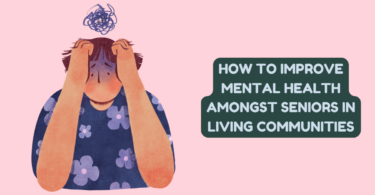
The novelty of the study is that various socio-demographic and lifestyle variables have been taken into account that could mask the real association and that had not been considered in previous studies.
Depression, the main cause of disability
Depression is a serious mental illness that affects more than 300 million people worldwide.
It is the leading cause of disability and the fourth in terms of the global burden of disease.
The two main treatment options for depression are antidepressant medications and some psychotherapy modalities, such as cognitive-behavioral therapy.
Due to limited access to psychotherapy treatments, antidepressants are the most prescribed treatment for depression in primary care. However, treatment adherence is relatively low, in addition to not being free from adverse effects.
Life habits and depression
Control of depressive symptoms can be aided by lifestyle changes. This is especially important in patients for whom conventional treatments are not an effective option or patients with subclinical depressive symptoms.
In this context, the benefits derived from physical activity are well documented. On the other hand, there are dietary factors that are related to depressive symptoms. Among them is chocolate.
Chocolate and depression
The factors that relate to the consumption of chocolate and the depressive symptoms or the mood are several. Among them, the organoleptic or sensory characteristics of chocolate, the psychoactive ingredients of cocoa, and the activation of neural reward mechanisms stand out.
However, to date, there is no quality scientific evidence to support this association. In this sense, only a small number of studies have analyzed the association between chocolate consumption and depressive symptoms, with mixed results.
In addition, in the studies carried out previously, some variables that could confuse the association between chocolate consumption and depressive symptoms, such as socio-economic status and physical activity, among others, were not taken into account.
A new study on chocolate consumption and depression
The study that we present today, carried out by a group of researchers from different countries, has recently been published in the journal Depression & Anxiety.
To do this, they analyzed data from the United States health survey ‘The National Health and Nutrition Examination Survey’ (NHANES), including participants older than 20 years from 2007 to 2014 with information on chocolate consumption and evaluation of symptoms of depression.
To assess the consumption of chocolate, the participants completed two 24-hour reminders of food intake, specifically including the total intake of chocolate and the intake of dark chocolate (understood as chocolate with a percentage of cocoa greater than 45%). ).
Depressive symptoms were assessed using the Patient Health Questionnaire (PHQ-9) that includes questions about the frequency of symptoms during the last 2 weeks. A score on the questionnaire above or equal to 10 indicated the presence of depression.
Study results
A total of 20,125 participants provided data on chocolate consumption and depressive symptoms, of which 13,626 were finally included, after excluding those who did not complete the rest of the relevant information, had low body weight or had diabetes.
A total of 1,332 (11.1%) participants showed consumption of any type of chocolate in their 24-hour recalls, of which 148 (12.1%) documented the consumption of dark chocolate.
However, participants who consumed dark chocolate were 70% less likely to have relevant depressive symptoms than those who did not consume any chocolate (OR = 0.30; 95% CI 0.21–0.72).
The association continued to be evident after adjusting for factors such as age, marital status, educational level, household income, body weight, presence of chronic diseases, level of physical activity, smoking, alcohol intake, calorie intake, and sugar intake.
Beneficial mechanisms of chocolate
There is extensive literature that shows a positive association between the consumption of dark chocolate and certain beneficial health effects. These effects are mainly attributable to flavonoids with antioxidant properties from cocoa that can improve parameters related to inflammation.
Flavonoids have also shown a positive influence on episodic memory and cognitive decline. In this sense, it could be that dark chocolate, rich in flavonoids, had a positive effect on mental health, including depression, while milk chocolate, low in flavonoids, would not have this effect.
Other mechanisms have been proposed by which chocolate could potentially prevent the onset or reduce depressive symptoms. One of them is the presence in chocolate of psychoactive compounds, including two analogs of anandamide (which causes effects similar to the euphoria produced by cannabinoids) and various biogenic amines. Among them, phenylethylamine stands out, a neurotransmitter involved in the regulation of mood and the pathogenesis of depression.
On the other hand, the consumption of chocolate is a pleasant experience that could interact with the neurotransmitter system related to the reward and mood regulation mechanisms (dopamine, serotonin, and endorphins).
Study weaknesses
It should not be forgotten that this is an observational study in which only correlations can be established. Thus, one explanation for the relationship observed in the study could be that depressive symptoms lead people to eat less chocolate. However, previous research indicates that about half of people who have experienced a depressive episode of more than 2 weeks reported high chocolate intakes, believing that chocolate helps to reduce anxiety and irritability.
On the other hand, the quantification of the chocolate consumed using two 24-hour reminders could not be reliable, since it is a food that is not consumed, in general, daily basis






